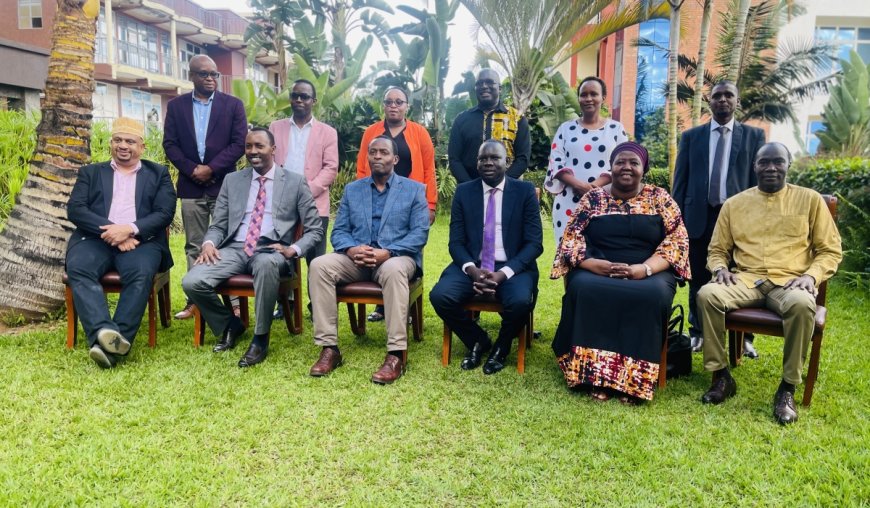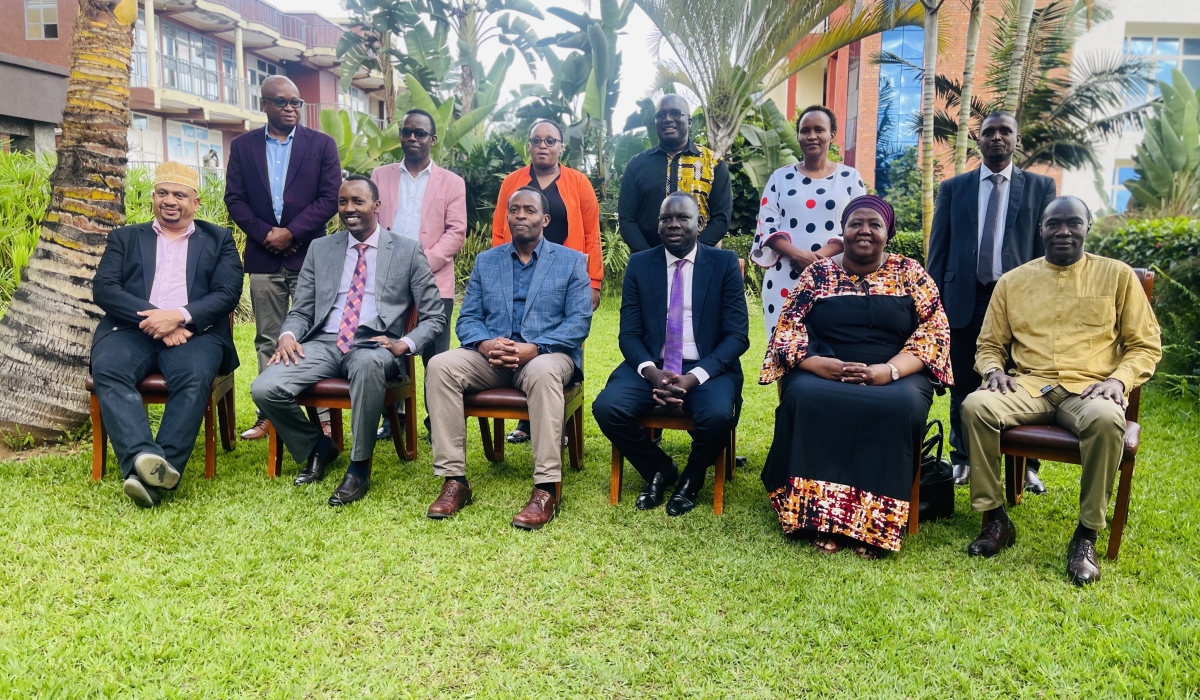Why EAC needs to harmonise health data governance
Why EAC needs to harmonise health data governance| The New Times New Times Publication

Participants in the first East African Community (EAC) Annual Inter-parliamentary Forum on Sexual Reproductive Health (SRH), or Reproductive, Maternal, Newborn, Child and Adolescent Health (RMNCAH)

Participants in the first East African Community (EAC) Annual Inter-parliamentary Forum on Sexual Reproductive Health (SRH), or Reproductive, Maternal, Newborn, Child and Adolescent Health (RMNCAH) pose for a group photo in Kigali, November 18, 2023. PHOTOS BY EMMANUEL NTIRENGANYA
Sustainable Development Goals (SDGs)
The first East African Community (EAC) Annual Inter-parliamentary Forum on Sexual Reproductive Health (SRH), or Reproductive, Maternal, Newborn, Child and Adolescent Health (RMNCAH), held in Kigali on November 18, 2023, aligns with several Sustainable Development Goals (SDGs) set by the United Nations.
SDG 3: Good Health and Well-being
The forum contributes to SDG 3 by focusing on sexual reproductive health and the well-being of individuals across all stages of life, from newborns to adolescents. By addressing the challenges and opportunities in this area, the forum aims to improve overall health outcomes and ensure access to quality healthcare services for all.
SDG 5: Gender Equality
SDG 5 emphasizes the importance of achieving gender equality and empowering all women and girls. The forum recognizes the unique health needs of women and girls, particularly in relation to reproductive health. By discussing policies and strategies to address these needs, the forum promotes gender equality and women’s empowerment.
SDG 10: Reduced Inequalities
Reducing inequalities is a key objective of SDG 10. The forum acknowledges the disparities in access to sexual reproductive health services and aims to address these inequalities. By advocating for equal access to healthcare and promoting inclusive policies, the forum contributes to the goal of reducing inequalities.
SDG 17: Partnerships for the Goals
SDG 17 emphasizes the importance of partnerships and collaboration to achieve the SDGs. The forum serves as a platform for parliamentarians from different East African countries to come together and exchange ideas, experiences, and best practices. Through these partnerships, the forum strengthens regional cooperation and fosters collective action towards achieving the SDGs.
Conclusion
The first East African Community (EAC) Annual Inter-parliamentary Forum on Sexual Reproductive Health (SRH), or Reproductive, Maternal, Newborn, Child and Adolescent Health (RMNCAH) held in Kigali on November 18, 2023, highlights the importance of addressing sexual reproductive health issues and promoting the well-being of individuals across all stages of life. By aligning with the Sustainable Development Goals (SDGs), the forum contributes to the global efforts towards achieving good health and well-being, gender equality, reduced inequalities, and partnerships for sustainable development.
SDGs, Targets, and Indicators
1. Which SDGs are addressed or connected to the issues highlighted in the article?
- SDG 3: Good Health and Well-being
- SDG 5: Gender Equality
- SDG 10: Reduced Inequalities
2. What specific targets under those SDGs can be identified based on the article’s content?
- SDG 3.7: By 2030, ensure universal access to sexual and reproductive health-care services, including for family planning, information and education, and the integration of reproductive health into national strategies and programs.
- SDG 5.6: Ensure universal access to sexual and reproductive health and reproductive rights as agreed in accordance with the Program of Action of the International Conference on Population and Development and the Beijing Platform for Action and the outcome documents of their review conferences.
- SDG 10.2: By 2030, empower and promote the social, economic, and political inclusion of all, irrespective of age, sex, disability, race, ethnicity, origin, religion, or economic or other status.
3. Are there any indicators mentioned or implied in the article that can be used to measure progress towards the identified targets?
- Indicator for SDG 3.7: Proportion of women of reproductive age (15-49 years) who have their need for family planning satisfied with modern methods.
- Indicator for SDG 5.6: Proportion of women aged 15-49 years who make their own informed decisions regarding sexual relations, contraceptive use, and reproductive health care.
- Indicator for SDG 10.2: Proportion of population reporting having personally felt discriminated against or harassed in the previous 12 months on the basis of a ground of discrimination prohibited under international human rights law.
4. Table: SDGs, Targets, and Indicators
| SDGs | Targets | Indicators |
|---|---|---|
| SDG 3: Good Health and Well-being | 3.7: By 2030, ensure universal access to sexual and reproductive health-care services, including for family planning, information and education, and the integration of reproductive health into national strategies and programs. | Proportion of women of reproductive age (15-49 years) who have their need for family planning satisfied with modern methods. |
| SDG 5: Gender Equality | 5.6: Ensure universal access to sexual and reproductive health and reproductive rights as agreed in accordance with the Program of Action of the International Conference on Population and Development and the Beijing Platform for Action and the outcome documents of their review conferences. | Proportion of women aged 15-49 years who make their own informed decisions regarding sexual relations, contraceptive use, and reproductive health care. |
| SDG 10: Reduced Inequalities | 10.2: By 2030, empower and promote the social, economic, and political inclusion of all, irrespective of age, sex, disability, race, ethnicity, origin, religion, or economic or other status. | Proportion of population reporting having personally felt discriminated against or harassed in the previous 12 months on the basis of a ground of discrimination prohibited under international human rights law. |
Behold! This splendid article springs forth from the wellspring of knowledge, shaped by a wondrous proprietary AI technology that delved into a vast ocean of data, illuminating the path towards the Sustainable Development Goals. Remember that all rights are reserved by SDG Investors LLC, empowering us to champion progress together.
Source: newtimes.co.rw

Join us, as fellow seekers of change, on a transformative journey at https://sdgtalks.ai/welcome, where you can become a member and actively contribute to shaping a brighter future.







